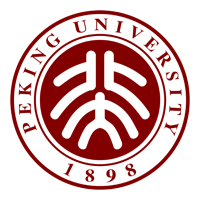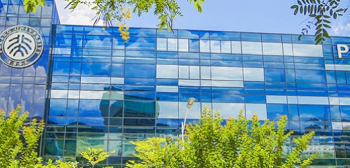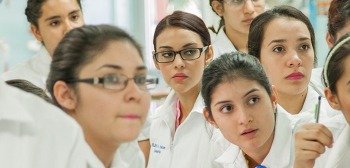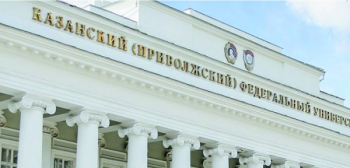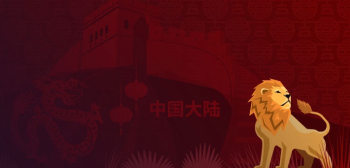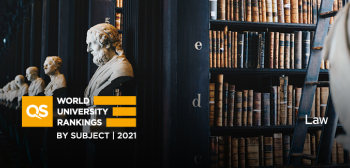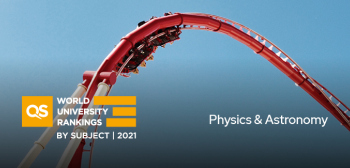北京大学
About
The oldest higher education institution in China, Peking University was founded in 1898 as a replacement for the ancient Guozijian school (Imperial College). By the early 1920s, it had become a center for Chinese progressive thought, playing an important role in China's New Culture Movement, the May Fourth Movement, and the Tiananmen Square protest of 1989, among other significant historical events.
Peking University has been consistently ranked as the top academic institution in China. As well as being renowned academically, it’s well-known for its stunning campus grounds and for the beauty of its traditional Chinese architecture. Peking University has educated some of the most prominent figures in Chinese history, including Mao Zedong.
The main university campus is in the former site of the Qing Dynasty imperial gardens and as such features traditional Chinese-style landscaping, including traditional houses, gardens, pagodas, as well as many notable historical buildings and structures. Weiming Lake is to the north of the campus and is surrounded by walking paths and small gardens.
The university grounds are also home to museums, such as the Museum of University History and the Arthur M. Sackler Museum of Art and Archaeology, in which students can view objects dating back thousands of years. It’s an environment to feed the enquiring minds of young students – not that the academic curriculum doesn’t already do that.
Peking University is a leading university for science research and teaching and has successfully developed applied sciences research and teaching as well. There are 30 colleges and 12 departments, with 93 undergraduate programs, 199 master's degree programs, and 173 options for doctoral candidates.
Peking is eager for students to receive not only comprehensive education, but to take part in student life to the full. Life on campus is rich with sport and extracurricular fare, with more than 200 student organizations and a range of activities running year-round.
Sport is important, with Beida Cup Athletic Championships taking place each year, while festivals and events such as the International Cultural Festival, or Singing Competition for Foreign Students, allow students to meet up, make friends and enjoy a balanced life outside of their studies.
About
The oldest higher education institution in China, Peking University was founded in 1898 as a replacement for the ancient Guozijian school (Imperial College). By the early 1920s, it had become a center for Chinese progressive thought, playing an important role in China's New Culture Movement, the May Fourth Movement, and the Tiananmen Square protest of 1989, among other significant historical events.
Peking University has been consistently ranked as the top academic institution in China. As well as being renowned academically, it’s well-known for its stunning campus grounds and for the beauty of its traditional Chinese architecture. Peking University has educated some of the most prominent figures in Chinese history, including Mao Zedong.
The main university campus is in the former site of the Qing Dynasty imperial gardens and as such features traditional Chinese-style landscaping, including traditional houses, gardens, pagodas, as well as many notable historical buildings and structures. Weiming Lake is to the north of the campus and is surrounded by walking paths and small gardens.
The university grounds are also home to museums, such as the Museum of University History and the Arthur M. Sackler Museum of Art and Archaeology, in which students can view objects dating back thousands of years. It’s an environment to feed the enquiring minds of young students – not that the academic curriculum doesn’t already do that.
Peking University is a leading university for science research and teaching and has successfully developed applied sciences research and teaching as well. There are 30 colleges and 12 departments, with 93 undergraduate programs, 199 master's degree programs, and 173 options for doctoral candidates.
Peking is eager for students to receive not only comprehensive education, but to take part in student life to the full. Life on campus is rich with sport and extracurricular fare, with more than 200 student organizations and a range of activities running year-round.
Sport is important, with Beida Cup Athletic Championships taking place each year, while festivals and events such as the International Cultural Festival, or Singing Competition for Foreign Students, allow students to meet up, make friends and enjoy a balanced life outside of their studies.
University highlights
- 2012#44
- 2014#46
- 2015#=57
- 2016#41
- 2017#39
- 2018#=38
- 2019#30
- 2020#=22
- 2021#23
- 2022#18
- 2023#12
- 2024#=17
- 2025#14
- 2026#14
Campus locations
No. 5 Yiheyuan Road, Haidian District, Beijing, CN,
No. 5 Yiheyuan Road , Beijing , Beijing , China , 100871
Similar Universities
Yunnan Minzu University
Chenggong
Duke Kunshan University
No. 8 Duke Avenue, Kunshan
The Chinese University of Hong Kong, Shenzhen
2001 Longxiang Blvd., Longgang District, Shenzhen
The Central Academy of Drama, China
4E Hong Fu Middle Rd, Changping District
西交利物浦大学
No.111 Ren'ai Road, Suzhou
北京大学汇丰商学院(PHBS)
University Town, Xili, Nanshan District, Shenzhen Shi
索诺拉大学
Blvd. Luis Encinas y Rosales S/N, Hermosillo

